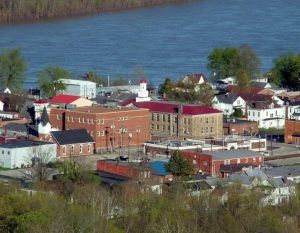
April is Fair Housing Month
For many, the month of April signals a seasonal awakening when the warmer temperatures of the coming spring begin to rouse nature from its wintertime hibernation. However, for Fahe and our Members, April also serves as an annual awakening of another sort. For us, this month marks Fair Housing Month, a yearly reminder about the legacy of the Fair Housing Act and the challenges that still remain for many overlooked communities in expanding access to homes that families can afford.
Over fifty years ago, in response to growing inequities in the housing sector, Congress first passed the Fair Housing Act in 1968 and later strengthened the law in 1988. Its primary mission was, and still remains, to prevent discrimination in housing on the basis of race, religion, national origin, sex or disability. These barriers have historically kept many families from being able to buy or rent a house in the neighborhood of their choice. Even today, for instance, fair housing obstacles often hinder disabled or elderly residents from finding mobility-friendly or wheelchair-accessible rental units in communities where the availability of such housing is scarce. That’s where Fahe’s experienced network of local housing advocates steps in.
Throughout its history, the Fahe Network has uniquely positioned itself as a frontline leader in the fight to secure fair and equitable access to housing. While our Members offer a wide variety of community services and support for disadvantaged families throughout the region, they all share a core mission in addressing housing needs in their local communities.
Perhaps one of the clearest examples of the Fahe Network’s commitment to fair housing can be found in Vanceburg, a small community of roughly 1,500 people nestled between the rolling hills of eastern Kentucky and the winding bends of the Ohio River. There, Fahe Member People’s Self-Help Housing (PSHH) has been diligently offering housing opportunities in Lewis County since 1982 for people who often encounter obstacles to owning or renting a home. Executive Director Dave Kreher believes that fair housing is a central tenant of the services his organization provides to the community. Of the 150 rental units owned and operated by People’s Self-Help Housing, 15% are totally accessible for people with disabilities. “We make every effort to be fair and make sure everyone is treated like everyone else,” Kreher emphasized.
In addition to rental dwellings and new home construction, Kreher’s organization also focuses on restoring older homes in disrepair and retrofitting existing homes with accessibility features designed to assist the elderly or those with disabilities. He notes that as many locals age, most want to ensure they can remain in their homes around nearby family and friends. The People’s Self-Help Housing team works to actualize this goal by designing and implementing mobility accommodations such as expanded bathrooms, hand rails, and external stair replacements with ramps, allowing residents to enjoy their golden years in their own homes.
To PSHH and the whole Fahe Network, fair housing also means serving places and people that are often overlooked by traditional lenders in the housing market. One of Fahe’s newest tools to combat economic and geographic exclusion from home ownership is the MicroMortgage Marketplace. This pilot program, in collaboration with the Homeownership Council of America (HCA), focuses on the purchase of homes in Louisville and southern Indiana using mortgages under $100,000. Historically, many financial institutions are hesitant to extend such small-dollar mortgages, leaving many potential borrowers without a viable pathway to home ownership. Offering affordable micro-mortgages expands the range of options available to these families and can provide a useful alternative to expensive rental markets that lack the wealth-building opportunities of ownership.
Each year, the onset of spring and the commemoration of the Fair Housing Act reminds all of Fahe’s partners and advocates that the promise of equitable and affordable access to a quality home belongs to everyone. The Fahe Network remains dedicated to realizing this promise by broadening accessible housing options and partnering with organizations that are likewise implementing creative and enduring solutions across the region.
If you believe you have experienced housing discrimination, you may submit a complaint to the U.S. Department of Housing and Urban Development at https://www.hud.gov/program_offices/fair_housing_equal_opp/online-complaint.

(Photo Credit: www.kentuckytourism.com)
